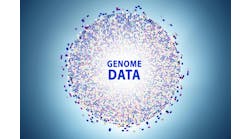A Geisinger health system research team is developing a tool that will allow healthcare providers to diagnose a genetic basis for select medical conditions in real time.
Determining that a medical condition has a genetic basis can have a significant impact on the course of treatment. With a $5 million grant from the National Institute of Health’s National Human Genome Research Institute, the researchers’ proposed High Impact Phenotype Identification System (HIPIS) will seek to shorten the time between onset of symptoms and discovery of a genetic basis for 13 medical conditions, improving patient care and outcomes.
“Complex diseases frustrate patients and create a burden on healthcare systems through multiple hospitalizations and frequent testing,” said Marc Williams, M.D., professor at Danville, Pa.-based Geisinger’s Genomic Medicine Institute and principal investigator for the project, in a statement. “Enabling physicians to access genetic information in real time could prevent much of this burden by eliminating the gap between onset of symptoms and genetic diagnosis.”
The research team has identified 13 “high-impact” conditions with a high likelihood of having a genetic basis or for which a genetic diagnosis would significantly affect or alter management of the condition. These include pediatric epilepsy, heart disease, Type 2 diabetes, and congenital kidney disease, among others.
An analysis of Geisinger’s electronic health records showed that the average time from symptom onset for one of these conditions to diagnosis as a genetic condition is 3.5 years, and in some cases can take up to 12 years. This delay in genetic diagnosis can affect the patient’s treatment and overall health outcomes.
Working alongside experts in each specialty, researchers will develop models that can identify patients with documented clinical signs and symptoms of these high-impact conditions and allow healthcare providers to screen for and diagnose a genetic basis in real time. The team will also analyze clinical workflow to determine the best points at which to present genetic information to providers.


